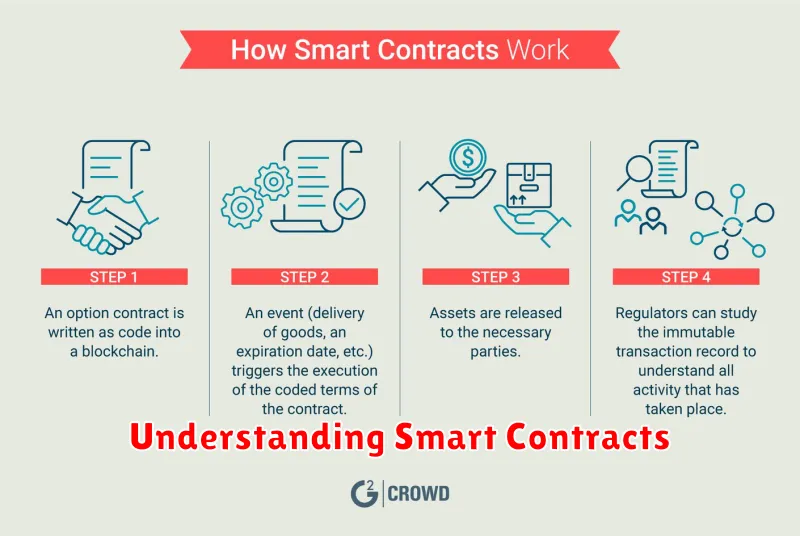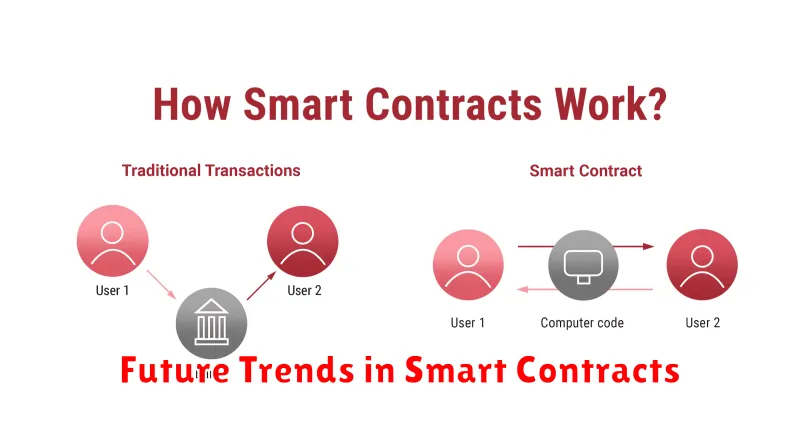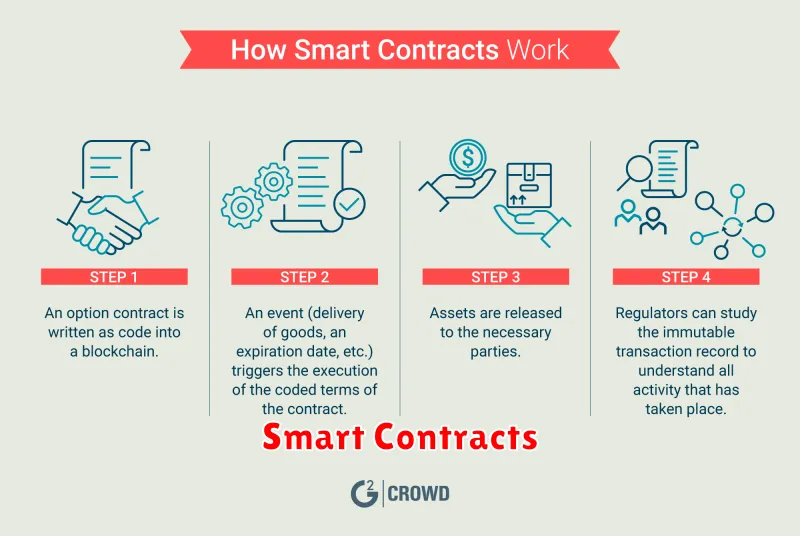In the rapidly evolving landscape of technology, smart contracts are emerging as a transformative force, revolutionizing the way we conduct business and interact with each other. These self-executing agreements, encoded on a blockchain, promise to streamline processes, enhance transparency, and foster trust in a decentralized environment. From automating complex transactions to eliminating intermediaries, smart contracts offer a wide array of benefits across diverse industries.
However, the implementation of smart contracts also presents a unique set of challenges. Security vulnerabilities, regulatory uncertainties, and the need for widespread adoption are just a few hurdles that must be overcome to unlock the full potential of this groundbreaking technology. This article delves into the benefits and challenges associated with smart contract implementation, providing insights into the opportunities and obstacles that lie ahead.
Understanding Smart Contracts

Smart contracts are self-executing contracts that automatically enforce the terms of an agreement between two or more parties. They are written in code and stored on a blockchain, making them transparent, tamper-proof, and immutable.
These contracts can automate a wide range of processes, eliminating the need for intermediaries and reducing the risk of fraud. Once deployed, smart contracts execute automatically based on predefined conditions, ensuring that all parties involved adhere to the agreed-upon terms.
Smart contracts work by leveraging the power of blockchain technology. The code is stored on a decentralized network, ensuring that it cannot be tampered with. When certain conditions are met, the code automatically executes, triggering actions specified in the contract.
Examples of smart contract applications include:
- Supply chain management
- Decentralized finance (DeFi)
- Digital identity verification
- Voting systems
- Escrow services
How Smart Contracts Work on the Blockchain
Smart contracts are self-executing agreements written in code and stored on a blockchain. They automate the execution of agreements, eliminating the need for intermediaries and ensuring transparency and immutability.
When a smart contract is deployed on a blockchain, it becomes part of the distributed ledger. Each transaction involving the smart contract is recorded and verified by the network’s nodes, ensuring its integrity and security.
Smart contracts function based on predefined conditions and rules. When these conditions are met, the contract automatically executes the specified actions. This automation eliminates the risk of human error and ensures that all parties involved adhere to the terms of the agreement.
For example, a smart contract could be used to automate payments for a service, execute a loan agreement, or manage the ownership of digital assets. The code defines the specific conditions for each transaction and the actions to be taken.
Smart contracts are built on a decentralized and transparent system, offering several advantages over traditional contracts. They are resistant to fraud, censorship, and manipulation due to the immutability of the blockchain.
The Benefits of Using Smart Contracts
Smart contracts offer a revolutionary approach to contract execution, leveraging blockchain technology to automate and streamline agreements. These self-executing contracts eliminate the need for intermediaries, reduce the risk of fraud, and enhance transparency and efficiency.
One of the most significant benefits of smart contracts is their immutability. Once deployed on a blockchain, they cannot be altered or tampered with, ensuring that agreements remain binding and secure. This eliminates the risk of fraud or manipulation, providing a high level of trust and reliability.
Smart contracts also offer increased efficiency. By automating the execution of contractual obligations, they eliminate the need for manual processes, reducing delays and minimizing errors. This efficiency translates into cost savings and faster transaction times.
Furthermore, smart contracts foster transparency. All transactions and data related to the contract are recorded on a public blockchain, making it readily accessible to all parties involved. This level of transparency enhances accountability and promotes trust.
Another key benefit is global reach. Smart contracts operate on decentralized networks, enabling cross-border transactions without geographical limitations. This opens up new opportunities for businesses to collaborate and engage with global partners.
Finally, smart contracts provide reduced costs. By eliminating intermediaries and streamlining processes, they can significantly reduce the expenses associated with traditional contract management. This cost-effectiveness makes them an attractive solution for businesses of all sizes.
Challenges in Implementing Smart Contracts
While smart contracts offer numerous benefits, their implementation presents several challenges that developers and businesses must address.
One significant challenge is security. Smart contracts, being immutable, are vulnerable to code vulnerabilities that could be exploited by malicious actors. Any flaw in the contract’s logic can lead to irreversible consequences. Thorough auditing and testing are crucial to mitigate these risks.
Another challenge lies in scalability. As the number of transactions on a blockchain network increases, the processing time and cost of executing smart contracts can rise. This can lead to performance bottlenecks and hinder the adoption of smart contracts for large-scale applications.
Interoperability between different blockchains is also a challenge. Smart contracts often operate within a specific blockchain ecosystem, making it difficult to interact with contracts on other platforms. This limitation restricts the reach and potential of smart contracts.
Furthermore, the legal and regulatory landscape surrounding smart contracts is still evolving. The lack of clear legal frameworks and regulatory guidelines can create uncertainty and hinder the widespread adoption of this technology.
Finally, the complexity of smart contract development poses a challenge. Writing secure and efficient smart contracts requires specialized skills and knowledge, which can be difficult to acquire. The lack of standardized tools and frameworks further complicates the development process.
Future Trends in Smart Contracts

The field of smart contracts is rapidly evolving, with several exciting trends shaping its future. These trends hold the potential to revolutionize how we interact with technology and reshape various industries.
One prominent trend is the increasing adoption of interoperability between different blockchain platforms. This allows smart contracts to seamlessly communicate and interact across multiple networks, fostering greater collaboration and accessibility.
Another key trend is the development of privacy-enhancing technologies. Techniques like zero-knowledge proofs and homomorphic encryption allow for the execution of smart contracts while preserving data confidentiality and user privacy.
The emergence of decentralized oracles is transforming how smart contracts access real-world data. These oracles bridge the gap between blockchains and external data sources, enabling more sophisticated and context-aware applications.
Furthermore, the rise of decentralized autonomous organizations (DAOs) is driving the development of complex smart contracts that govern and manage decentralized entities. DAOs offer a new paradigm for collaboration, decision-making, and resource allocation.
Looking ahead, the integration of artificial intelligence (AI) with smart contracts promises significant advancements. AI-powered smart contracts can adapt to changing circumstances, automate complex processes, and enhance decision-making.
These trends highlight the transformative potential of smart contracts, paving the way for a more efficient, secure, and decentralized future.
Case Studies: Successful Smart Contract Applications
Smart contracts have emerged as a powerful tool for automating and streamlining business processes across various industries. They offer numerous benefits, including enhanced transparency, efficiency, and security. However, implementing smart contracts also presents unique challenges. Here are some case studies of successful smart contract applications demonstrating their potential and the importance of addressing the challenges:
Supply Chain Management:
- Provenance: This platform utilizes smart contracts to track the origin and movement of goods, ensuring transparency and accountability throughout the supply chain. It helps combat counterfeiting and improves consumer trust.
- Wal-Mart: Wal-Mart implemented a blockchain-based system for tracking food products, enhancing transparency and ensuring food safety. This system utilizes smart contracts to manage data and automate processes.
Decentralized Finance (DeFi):
- MakerDAO: This platform allows users to borrow and lend cryptocurrencies using smart contracts. It eliminates the need for intermediaries, reducing costs and increasing efficiency.
- Uniswap: A decentralized exchange platform that uses smart contracts for automated trading of cryptocurrencies. It empowers users to trade directly with each other, without relying on centralized exchanges.
Healthcare:
- MedRec: This platform leverages smart contracts for secure and efficient management of electronic health records, empowering patients to control their medical data.
- Patientory: This system utilizes smart contracts for secure storage and sharing of patient medical data. It enhances privacy and enables better healthcare outcomes.
Real Estate:
- Propy: Propy facilitates secure and efficient real estate transactions using smart contracts. It reduces paperwork, speeds up the process, and increases transparency.
- OpenLaw: This platform utilizes smart contracts to automate legal processes in real estate, such as escrow management and property transfer.
These case studies demonstrate the immense potential of smart contracts across various sectors. They highlight the benefits of increased efficiency, transparency, security, and reduced costs. However, it is crucial to address the challenges associated with implementing smart contracts, such as security vulnerabilities, legal complexities, and the need for skilled developers.

